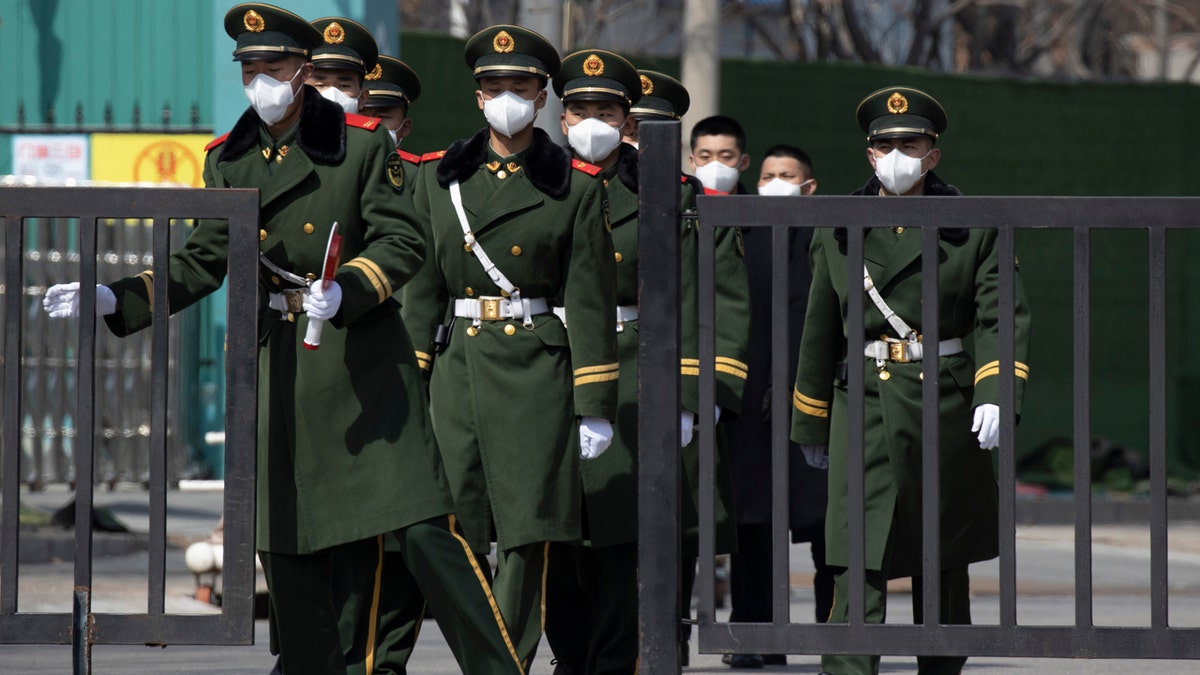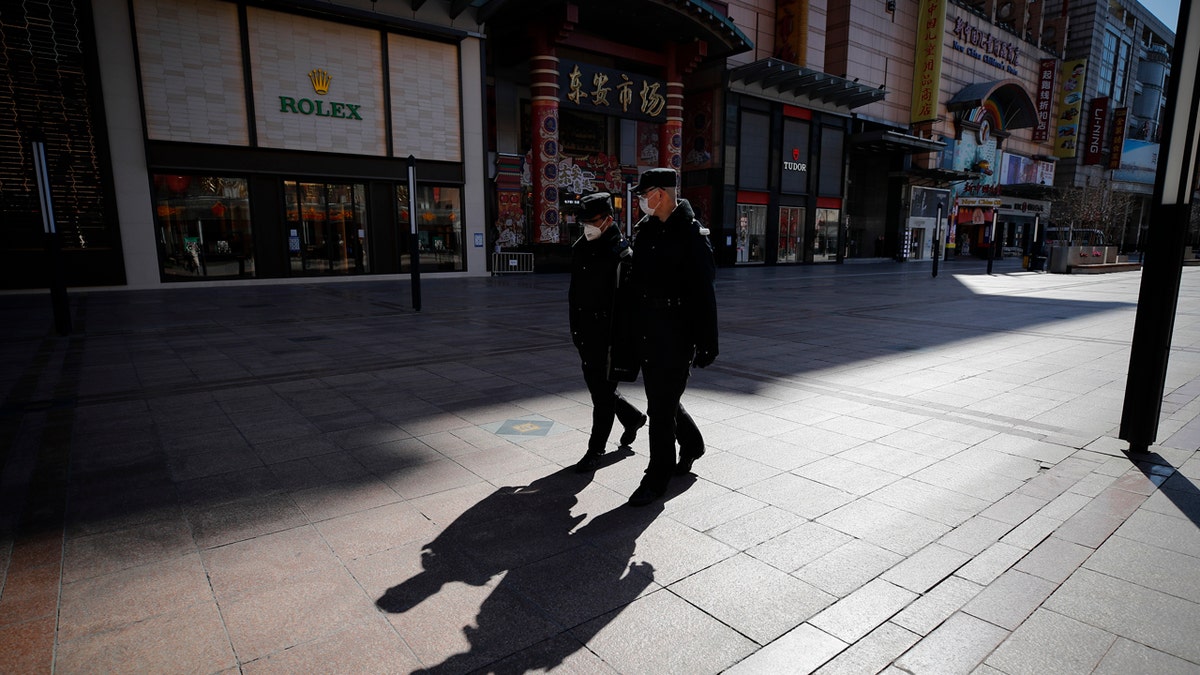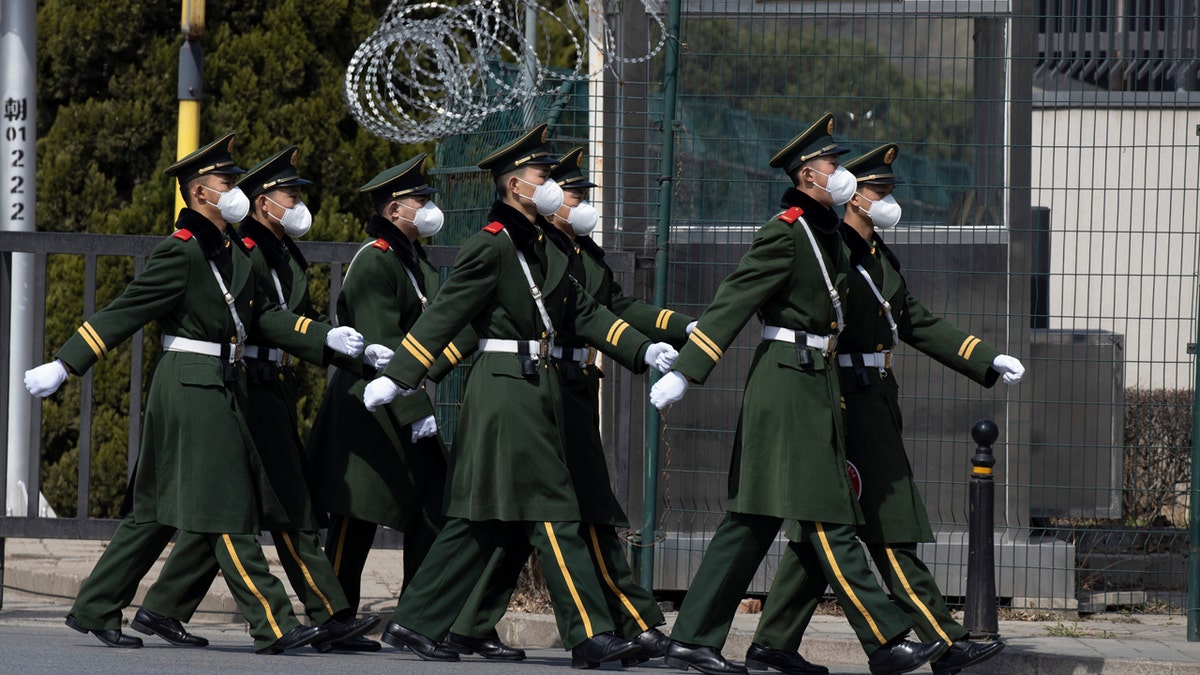China's Communist Party blaming coronavirus on US
Reaction from 'Coming Collapse of China' author Gordon Chang.
As Europe and the U.S. hunker down at home and stock up on supplies as coronavirus cases surge, officials in China began to ease travel restrictions on Monday in the country's epicenter of the deadly outbreak that's since spread globally.
The official Xinhua News Agency reported Monday that cities just outside the epicenter of Wuhan in the hardest-hit virus province of Hubei were chartering buses to send people who had returned home for the Lunar New Year in late January back to work.
The move came as Chinese officials said the outbreak that spread from Wuhan starting in December had mostly run its course domestically, while they remained vigilant against imported cases.
CHINESE TYCOON VANISHES AFTER CALLING XI A 'CLOWN,' SLAMMING GOVERNMENT'S HANDLING OF COVID-19
China, where COVID-19 was first detected in December, now accounts for less than half of the world's 169,000 cases, according to a tally by Johns Hopkins University.
The National Health Commission said Monday that China had 16 new infections on Sunday, which was down from 20 the previous day and took the mainland’s tally to 80,860 confirmed cases.
Twelve of the new figures were imported infections, which exceeded for a third day the number of domestic transmissions, according to Reuters.
A shutdown of public gatherings and a quarantine of the hardest-hit central region has steadied China's caseload as the virus spreads rapidly elsewhere around the world. Most of the world's 77,000 recovered patients are in China.

A shopper wearing a face mask browses an aisle of cooking oil in a supermarket in Beijing on Monday, March 16, 2020. (AP Photo/Ng Han Guan)
The outbreak of COVID-19 has had a devastating effect on China's service sector and industries from autos to cell phones, even as President Xi Jinping has pledged that economic growth targets for the year will still be met.
The move to relax travel restrictions is aimed at getting thousands of workers back to jobs at factories desperate to get production going again.

With more imported cases of the new coronavirus, starting Monday, travelers arriving in Beijing from overseas will be quarantined for 14 days in designated facilities at their own expense. (AP Photo/Ng Han Guan)
Xinhua cited local officials as saying that 750,000 migrant workers alone in the city of Huangguang adjacent to Wuhan have been unable to return to their jobs.
WHAT COUNTRIES HAVE NOT DECLARED ANY KNOWN CASES OF CORONAVIRUS?
The move to reduce travel restrictions in the country came as Chinese officials said they remained vigilant against imported cases.

In this Tuesday, March 10, 2020, security guards patrolling the quiet Wangfujing shopping, a usually popular tourist spot before the new coronavirus outbreak in Beijing. (AP Photo/Andy Wong)
Starting Monday, travelers arriving in Beijing from overseas will be quarantined for 14 days in designated facilities at their own expense. Previously, people without symptoms could self-quarantine at home. Beijing has redirected all international flights that were scheduled to land at its new Daxing airport in the south to the older international airport in the northeast.
CORONAVIRUS: WHAT YOU NEED TO KNOW
China has also suspended departures by ships on international cruises from mainland ports as well as routes to South Korea and Japan, Reuters reported.

Chinese paramilitary wearing masks march by during their duty in an embassy district in Beijing on Monday, March 16, 2020. (AP Photo/Ng Han Guan)
China’s death toll in the outbreak stood at 3,218 deaths as of Monday.
CLICK HERE FOR THE FOX NEWS APP
Even though China still has the most infections, a dozen other countries have more than 1,000 cases, mostly in Europe, where numerous countries have been imposing border controls.
The Associated Press contributed to this report.

